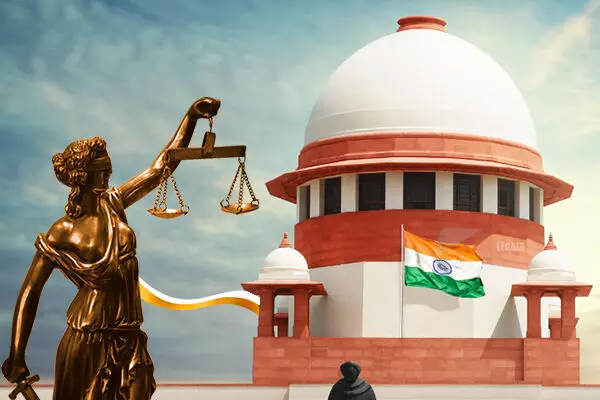Written by: Swapnil Mukherjee
Introduction:
Cryptocurrencies, which were once an obscure curiosity, have burgeoned into a global financial phenomenon with remarkable speed. India, with its vast population and digitally astute youth, has enthusiastically embraced this trend. Nonetheless, the trajectory of cryptocurrencies in India has been marked by ambiguity in regulation and an air of uncertainty. This article delves into the intricate landscape of cryptocurrency regulation in India, scrutinizing the hurdles, prospects, and the path forward.
The Ascension of Cryptocurrencies in India
Cryptocurrencies, especially Bitcoin, gained traction in India circa 2017 when Bitcoin's value soared, prompting a surge in investments and speculative trading. Consequently, cryptocurrency exchanges and trading platforms proliferated, enticing Indian investors to partake in the digital asset revolution.
Cryptocurrencies brought forth numerous advantages, including frictionless cross-border transactions, the potential for substantial returns, and financial inclusion for the unbanked populace. Nonetheless, these benefits coexisted with inherent risks, encompassing price volatility, security apprehensions, and the prospect of illicit applications.
The Quandary of Legality
The Indian government's response to cryptocurrencies has been marked by an enigmatic and wavering stance. While an outright ban on cryptocurrencies has not been declared, a cohesive regulatory framework encompassing them remains elusive.
Reserve Bank of India (RBI) Circular: In 2018, the RBI issued a circular prohibiting banks and financial institutions from engaging in cryptocurrency-related transactions. This action induced a climate of apprehension and perplexity among cryptocurrency users and businesses, triggering several legal petitions challenging the RBI's edict.
Supreme Court Verdict: In a landmark ruling in March 2020, the Supreme Court of India invalidated the RBI ban, asserting its unconstitutionality. This verdict breathed new life into India's cryptocurrency industry, permitting cryptocurrency exchanges to recommence operations.
Draft Bills and Proposed Regulations: Despite the Supreme Court's ruling, the government continued to voice concerns regarding cryptocurrency use. Various draft bills were tabled, including the "Cryptocurrency and Regulation of Official Digital Currency Bill, 2021," which aimed to proscribe private cryptocurrencies while endorsing a central bank digital currency (CBDC). Nevertheless, these bills have yet to be enshrined into law.
The Predicaments
The absence of lucid and comprehensive cryptocurrency regulations in India ushers in a multitude of predicaments:
Investor Apprehension: Cryptocurrency investors and enterprises in India continue to function amidst a milieu of uncertainty, uncertain about the government's potential introduction of stringent regulations or outright bans.
Potential for Misuse: Owing to their pseudonymous nature, cryptocurrencies can be employed for illicit activities, such as money laundering and tax evasion. The lack of regulations poses a challenge for law enforcement agencies in effectively monitoring and curbing such activities.
Limited Consumer Safeguards: The absence of regulations translates into limited recourse for consumers in the event of fraud, cyberattacks, or fund losses on cryptocurrency platforms.
Impeding Innovation: The regulatory ambiguity has the potential to stymie innovation in the blockchain and cryptocurrency sphere, thereby inhibiting Indian startups from fully harnessing the technology's potential.
The Path Ahead
To navigate the intricate labyrinth of cryptocurrency regulation in India, several imperative measures must be undertaken:
Clarity and Regulatory Framework: The government ought to furnish explicit guidelines and regulations that harmonize the risks and benefits of cryptocurrencies. A well-defined regulatory framework would assuage investor concerns and encourage responsible usage.
Safeguarding Consumers: It is imperative to institute mechanisms for safeguarding consumers within the cryptocurrency realm, encompassing regulations mandating exchanges to adhere to security and anti-money laundering standards.
Collaboration with Industry: The government should actively engage with stakeholders in the cryptocurrency industry to gain a more profound comprehension of the technology and its potential. Collaboration has the potential to yield more judicious regulations.
Taxation Policies: Cryptocurrency transactions should be subject to unequivocal tax policies to ensure that individuals and enterprises fulfill their tax obligations conscientiously.
International Cooperation: Given the transnational nature of cryptocurrencies, India should collaborate with other nations to develop coordinated regulations that adeptly address cross-border concerns.
Education and Awareness: The government should allocate resources to educational initiatives aimed at enhancing awareness regarding the risks and benefits of cryptocurrencies, empowering the public to make informed decisions.
Conclusion
The regulation of cryptocurrencies in India remains a multifaceted and dynamic challenge. While the technology promises financial inclusion and innovation, it also carries risks that demand attention. Effectively navigating the legal labyrinth of cryptocurrency regulation hinges on striking a balance between enabling innovation and safeguarding the interests of consumers and the financial system. Definitive and well-considered regulations can furnish the requisite guidance and assurance to all stakeholders, ensuring that India can leverage the potential of cryptocurrencies while mitigating associated risks. It is imperative that the Indian government proactively takes steps to establish a robust regulatory framework for cryptocurrencies, fostering a secure and conducive environment for their proliferation and adoption within the nation.








No comments:
Post a Comment